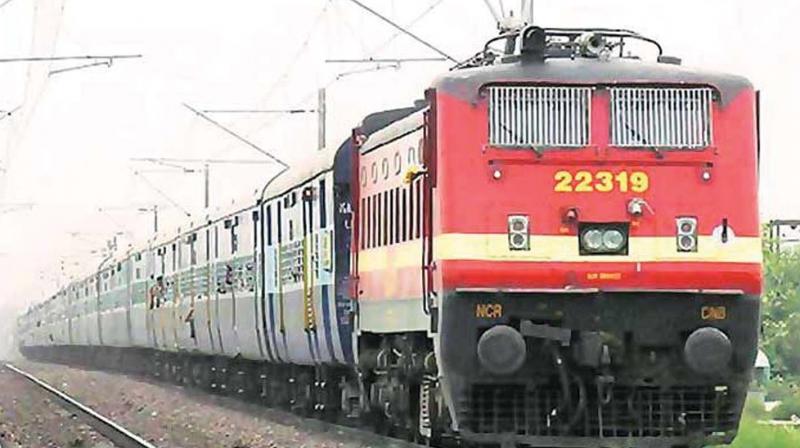Manpower shortage hinders IPO plans of IRCTC, RVNL
IRCTC is facing shortage of officials due to repatriation of railway officials on deputation.

New Delhi: A day after railway minister Piyush Goyal said lower valuation was the reason for deferring IRCTC public offer, it now transpires that a sudden manpower shortage could be the real rationale for putting the share sale plan on hold.
Indian Railway Catering and Tourism Corporation (IRCTC) is facing shortage of officials due to repatriation of railway officials on deputation.
The manpower issue has also hit the IPO plan of Rail Vikas Nigam (RVNL) in which 167 staff out of 388 on deputation from the railways would have to go back to their parent organisation. The problem has resulted due to a Railway Board decision to reduce deputation of railway officers with PSUs and other organisations to five years from a maximum of seven years.
Official sources said the decision to delay the listing of IRCTC and RVNL was taken at a meeting held in the Department of Investment and Public Asset Management (DIPAM).
Despite being one of the best performing companies under the Indian Railways fold, RVNL does not have enough staff of its own and hence borrow from the parent organisation.
It is the same with IRCTC where though the number of staff deputed from the railway ministry is lower at a little over 50, they are at very senior level and form the core part of the management, an official aware of the development told FC.
“If they are suddenly repatriated, the day-to-day functioning of the government would be affected. Therefore, it has been decided to hold the public offers for now. It will be taken up once the staffing issue is taken care of,” he added.
As per the annual report of Indian Railway Catering and Tourism Corporation, the company had a total staff strength of 2,124 out of which 66 were on deputation at the end of March, 2017. The RVNL is estimated to have a total staff strength of 543.
A railway sector expert said that railway has failed to build professional structure in case of IRCTC and RVNL noting that the latter acts virtually as a contractor for the parent organisation.
“The railways is moving in the right direction as far as RITES and IRCON are concerned. Coming out with their IPOs first is a welcome move as both the organisations have developed their expertise and grown. It will test the water for IRCTC and RVNL,” he said.
Meanwhile, railway officers are up in arms against the Board's decision to restrict deputation to five years and have argued that the move is not in line with the long established view of the ministry on the issue.
“On several occasions in the past, the ministry have advocated for longer tenure of deputations in rail PSUs/organisations. When powers of approval have got delegated to MoR for this purpose, it is indeed an irony that MoR (ministry of railways) is taking a contrary view,” the Federation of Railway Officers' Association (FROA) has written to Railway Board chairman.
The officers' body has termed the Railway Board order limiting deputation to five years as “avoidable hindrance” in its own PSUs. It has rejected the Board's argument of “a large number of requests” for issuing the restrictive order saying the railways is a huge organisation and hence the volume of deputation requests is only natural.
“But for these deputations, the cadres will face enormous stagnation and the PSUs/organisations would have huge HR crisis,” the FROA said in its letter.
While a department of personnel and training (DoPT) circular issued in 2016 provides for extending the tenure of deputation up to 7 years at a stretch, the Railway Board order (February, 2018) restricts extensions to five years.

